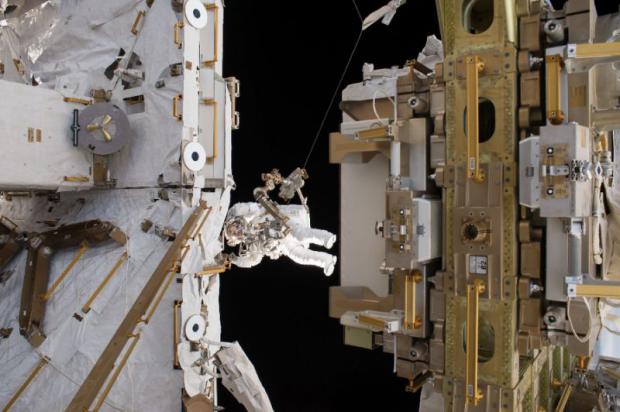
Breaking News
 Pentagon To Send 200 Troops to Nigeria
Pentagon To Send 200 Troops to Nigeria
 Trump Says He May Send Second Aircraft Carrier to Middle East To Prepare for Potential Attack...
Trump Says He May Send Second Aircraft Carrier to Middle East To Prepare for Potential Attack...
 A Market Crash and Recession Are Bullish, Not Bearish
A Market Crash and Recession Are Bullish, Not Bearish
 What Are They Still Hiding? New Epstein Questions Point to a Much Bigger Cover-Up
What Are They Still Hiding? New Epstein Questions Point to a Much Bigger Cover-Up
Top Tech News
 Drone-launching underwater drone hitches a ride on ship and sub hulls
Drone-launching underwater drone hitches a ride on ship and sub hulls
 Humanoid Robots Get "Brains" As Dual-Use Fears Mount
Humanoid Robots Get "Brains" As Dual-Use Fears Mount
 SpaceX Authorized to Increase High Speed Internet Download Speeds 5X Through 2026
SpaceX Authorized to Increase High Speed Internet Download Speeds 5X Through 2026
 Space AI is the Key to the Technological Singularity
Space AI is the Key to the Technological Singularity
 Velocitor X-1 eVTOL could be beating the traffic in just a year
Velocitor X-1 eVTOL could be beating the traffic in just a year
 Starlink smasher? China claims world's best high-powered microwave weapon
Starlink smasher? China claims world's best high-powered microwave weapon
 Wood scraps turn 'useless' desert sand into concrete
Wood scraps turn 'useless' desert sand into concrete
 Let's Do a Detailed Review of Zorin -- Is This Good for Ex-Windows Users?
Let's Do a Detailed Review of Zorin -- Is This Good for Ex-Windows Users?
 The World's First Sodium-Ion Battery EV Is A Winter Range Monster
The World's First Sodium-Ion Battery EV Is A Winter Range Monster
 China's CATL 5C Battery Breakthrough will Make Most Combustion Engine Vehicles OBSOLETE
China's CATL 5C Battery Breakthrough will Make Most Combustion Engine Vehicles OBSOLETE
US wants to privatize International Space Station: report

Washington (AFP) - Could the International Space Station become a commercial venture run by private industry?
That is the wish of the White House, which hopes to end funding for the costly program within a few years, The Washington Post reported Sunday.
Related SearchesInternational Space StationISS Space StationSpace Shuttle
The US plan, the paper said, involves privatizing the ISS, a low-orbit space station piloted by the US space agency NASA and developed jointly with its Russian counterpart.
The station has allowed international crews -- notably in collaboration with the Canadian, European and Japanese space agencies -- to pursue scientific research in the environment of a low Earth orbit.
"The decision to end direct federal support for the ISS in 2025 does not imply that the platform itself will be deorbited at that time," says an internal NASA document obtained by the Post. "It is possible that industry could continue to operate certain elements or capabilities of the ISS as part of a future commercial platform."
"NASA will expand international and commercial partnerships over the next seven years in order to ensure continued human access to and presence in low Earth orbit," the document says.
A budget request to be issued Monday by the Trump administration will call for $150 million to be spent on the ISS in the 2019 fiscal year, and more in succeeding years, "to enable the development and maturation of commercial entities and capabilities which will ensure that commercial successors to the ISS... are operational when they are needed."
To ensure a smooth transition, the White House would ask the private sector to provide market analyses and development plans, the Post reported.
The plan is expected to face stiff opposition. The United States has already spent some $100 billion to launch, operate and support the orbital station.



